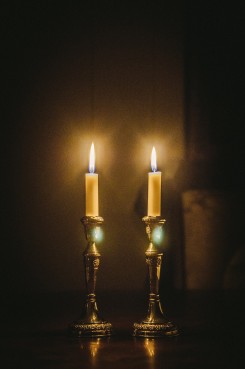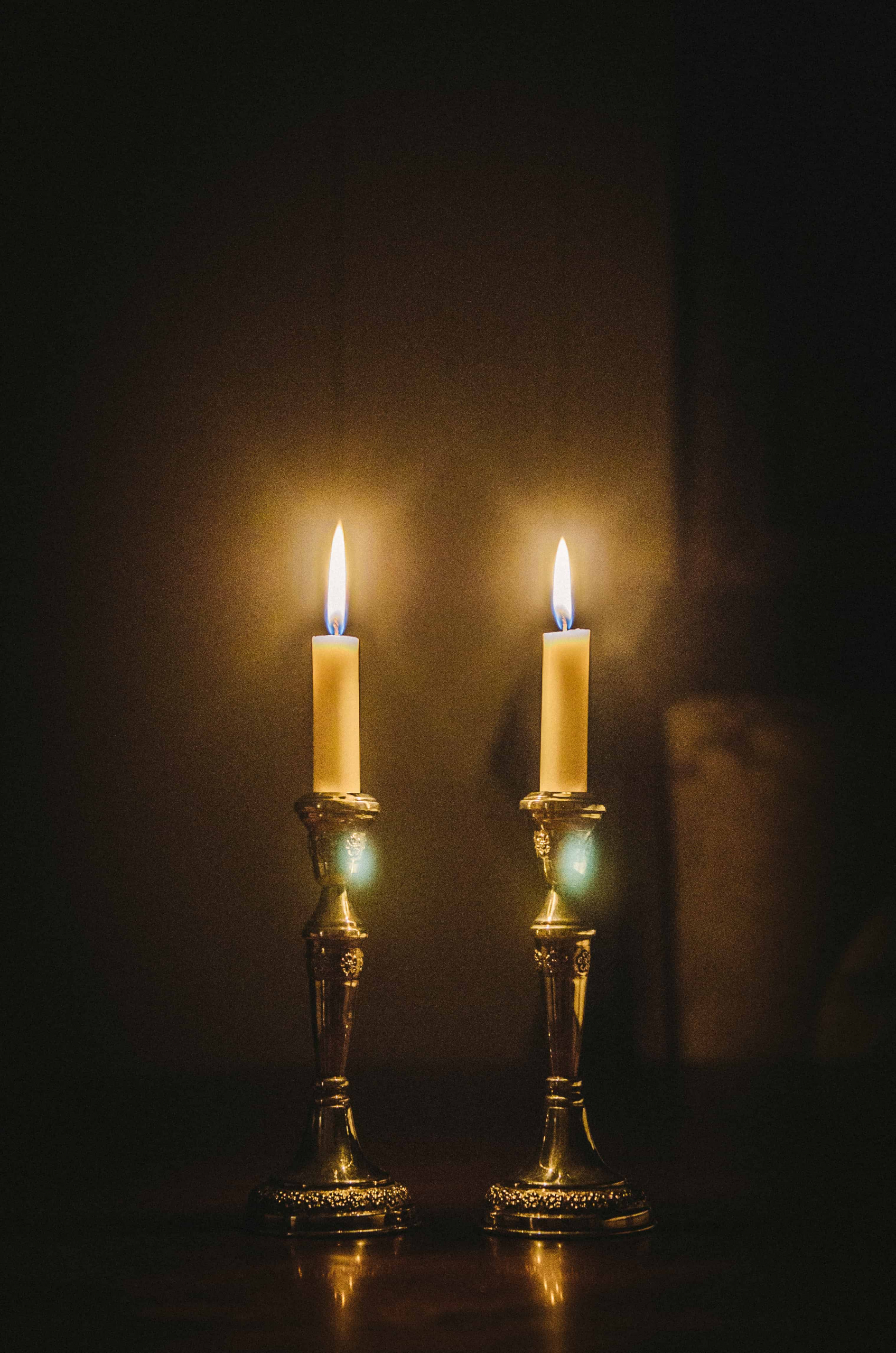The Friday afternoons of my childhood would unfold in almost exactly the same way every week. After we came home from school, my brother and I would sit in front of the TV, mouths gaping slightly, completely engrossed in whatever program we happened to be watching. Every now and then we would be jolted from our cartoon-induced stupor by a loud clanging in the kitchen, where my mother had jerked an elusive pot free from the back of the cupboard as she went about making dinner. My father would come home much earlier than he normally would, more often than not looking slightly harried, and head straight to the phone to put in one last call to his secretary before the weekend.
As the sunlight began to dissipate and darkness fell, my mother would call out, “OK everyone, I’m lighting the candles!”

BERNARDA GOSPIC/THE VARSITY
Then, suddenly, the TV would be turned off, the stove shut, the phone hung up. I would wander into our living room and watch as my mother struck a match and lit two candles that had been placed in a pair of slender, silver candlesticks. She would slowly wave her hands over the fire three times, cover her eyes, and say the blessing that I had heard so many times before: “Blessed are you, Lord our God, King of the universe, who sanctified us with His commandments and commanded us to light the Sabbath candles.”
For as long as I can remember, these candles, their dancing flames piercing the newly descended darkness, have served as a reminder that Friday nights are special, different from every other night.
According to the Jewish calendar, each new day begins at sundown, and Friday nights mark the beginning of the Sabbath, or Shabbat, as it is called in Hebrew. Since the time of the ancient Israelites, Shabbat has been considered the holiest day of the week. In modern times, many practicing Jews — including my family and I — honour Shabbat by adhering to a number of prohibitions and precepts. Between Friday evening and Saturday evening, we don’t use technology, conduct business, write, or drive. We eat special meals, say prayers, light candles, and recite blessings.
When I was younger, I never gave much thought to the temporary suspension of regular activity that I experienced each week between sundown on Friday to sundown on Saturday; I didn’t have to. I had been observing Shabbat for my entire life, as had most of my friends. I went to a private Jewish school, which ended earlier than usual on Friday afternoons to ensure that its students could get home before dusk. Observing Shabbat was routine and uncomplicated, and I was able to go about it as though it was simply a matter of course.
When I arrived at U of T, I was submerged, essentially for the first time, in an environment where my lifestyle was something of an anomaly. I quickly realized to a greater extent than I ever had before that for one day each week my life is dictated by the trajectory of the sun and the steady approach of nightfall.
Since entering university, my Friday afternoons have often felt like a race against the clock, a frenzied effort to cram as much as possible into a truncated day. I must always be sure to make sufficient progress on essays, assignments, proposals, and projects before the sun begins to set, which in winter can happen as early as 4.30 pm. I rush to leave campus, even if I haven’t finished searching article databases or collecting books from the library stacks, just to make sure that I arrive home before dusk.
I am always surprised at the extent to which my observance of Shabbat, my relatively brief disappearance from the flux of secular life, can set me apart from my peers. To most of my university friends, Friday nights are an opportunity to usher in the weekend, to let off steam after an intense week of classes, papers, and tests. They spend their Friday nights at parties and in bars, and there is rarely a time that I do not wish I could join them. B ut I have always declined the invitations to movie marathons and pub-crawls, girls’ nights and birthday parties. Instead, I spend my Friday nights at home, eating dinner with my family, reading books, and more often than not, going to bed early.
I would be lying if I said that I have never considered giving up on my observance of Shabbat and freeing myself from all the challenges and hassles that come with it. I am not a particularly devout person, nor even really a “spiritual” one, but Shabbat is important to me. It is important to me for reasons that I do not completely understand and cannot entirely articulate, other than that it has somehow become an integral part of my identity as a Jewish person. I am content to put things on hold each week between the bookends of two sunsets, to stay at home on Friday nights, watching as the smoke from the Shabbat candles disappears into the darkness.


